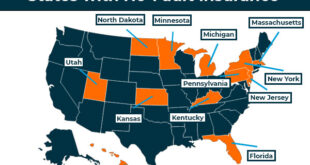Personal Loan Terms: Your Loan Agreement When considering a personal loan, understanding the terms and conditions is crucial. This article will help you navigate through the fundamental aspects of personal loan terms to empower you with the knowledge to make informed decisions.
Introduction to Personal Loan Terms
Personal loan terms refer to the specific conditions set by the lender in your loan agreement. These terms govern everything from how much you can borrow to how long you have to repay and the interest you’ll pay over time. Familiarity with these terms can help you choose the best loan product, avoid penalties, and achieve favorable repayment conditions.
Key Personal Loan Terms to Understand
1. Loan Amount
The loan amount is the total sum you are eligible to borrow from the lender. It depends on factors like income, credit score, and debt-to-income ratio.
2. Interest Rate
The interest rate is the percentage of the loan amount you’ll pay as interest. Interest rates can be fixed or variable and affect the overall cost of the loan.
3. Repayment Term
The repayment term is the length of time given to repay the loan, typically ranging from one to seven years for personal loans. Longer terms may lower monthly payments but increase the total interest paid.
4. Monthly Payments
Monthly payments consist of both principal and interest. The amount is calculated based on your loan amount, interest rate, and term.
5. Fees
Lenders may charge several types of fees, such as origination fees, late payment fees, or prepayment penalties. Reviewing these fees is essential to avoid unexpected costs.
6. Prepayment Penalty
Some loans charge a fee if you pay off the loan early. This is called a prepayment penalty and is designed to compensate the lender for lost interest.
7. Collateral (if required)
Personal loans are generally unsecured, but some may require collateral. Understanding whether collateral is required and its implications is important.
8. Loan Purpose
Lenders may ask for the intended use of the loan funds, such as debt consolidation or home improvement, to ensure it aligns with their policies.
9. Grace Period
The grace period is a short duration after a missed payment during which you won’t incur late fees. Not all loans offer this, so verify with your lender.
10. Default Conditions
Defaulting on a loan occurs when payments are consistently missed, leading to penalties and possible legal action. Understanding default conditions is vital for loan management.
10 Tips for Managing Personal Loan Terms
- Read the Fine Print: Always read your loan agreement thoroughly.
- Compare Loan Options: Evaluate multiple offers to find the most favorable terms.
- Check for Hidden Fees: Look beyond interest rates to understand all applicable fees.
- Understand Prepayment Terms: Know if there’s a penalty for paying off the loan early.
- Know Your Credit Impact: Understand how taking out the loan will affect your credit score.
- Set Up Auto-Pay: Automate payments to avoid missing due dates and incurring penalties.
- Choose a Manageable Term: Select a repayment term that balances monthly payment affordability with interest savings.
- Create a Repayment Plan: Have a strategy to manage payments effectively.
- Monitor Your Loan Statements: Review statements for any errors in charges or fees.
- Communicate with Your Lender: If issues arise, contact your lender to explore solutions.
10 FAQs About Personal Loan Terms
- What’s the typical interest rate for personal loans?
Rates vary widely but usually range between 6% and 36% depending on credit and other factors. - Can I change my loan terms after approval?
Changing loan terms post-approval is rare but possible under specific conditions. Ask your lender for details. - Is a co-signer required for all loans?
Not always. A co-signer may be optional but can help if you have low credit. - What are origination fees?
An origination fee is a one-time charge for processing the loan application, usually between 1%-8%. - How do I know if a personal loan is unsecured?
Personal loans are typically unsecured; however, confirm with the lender if no collateral is required. - What happens if I default on a personal loan?
Defaulting may lead to penalties, credit damage, or legal action. Always check default terms. - Are interest rates fixed or variable?
Personal loans can have either, but fixed rates are more common. - How soon can I repay my loan?
Most loans allow early repayment, but check for prepayment penalties first. - What’s the minimum credit score required?
Minimum credit score requirements vary by lender; usually, a score of 600+ is preferred. - Can I use my loan for any purpose?
Personal loans are versatile, but verify with your lender as some restrictions may apply.
Conclusion
In summary, understanding personal loan terms is essential for making an informed borrowing decision. Reviewing elements like loan amounts, repayment terms, and associated fees will help you choose a loan that fits your needs without unexpected financial strain. Armed with this knowledge, you’ll be better positioned to secure a personal loan that aligns with your financial goals, giving you peace of mind and control over your loan journey.
 Gerbang Finance
Gerbang Finance

